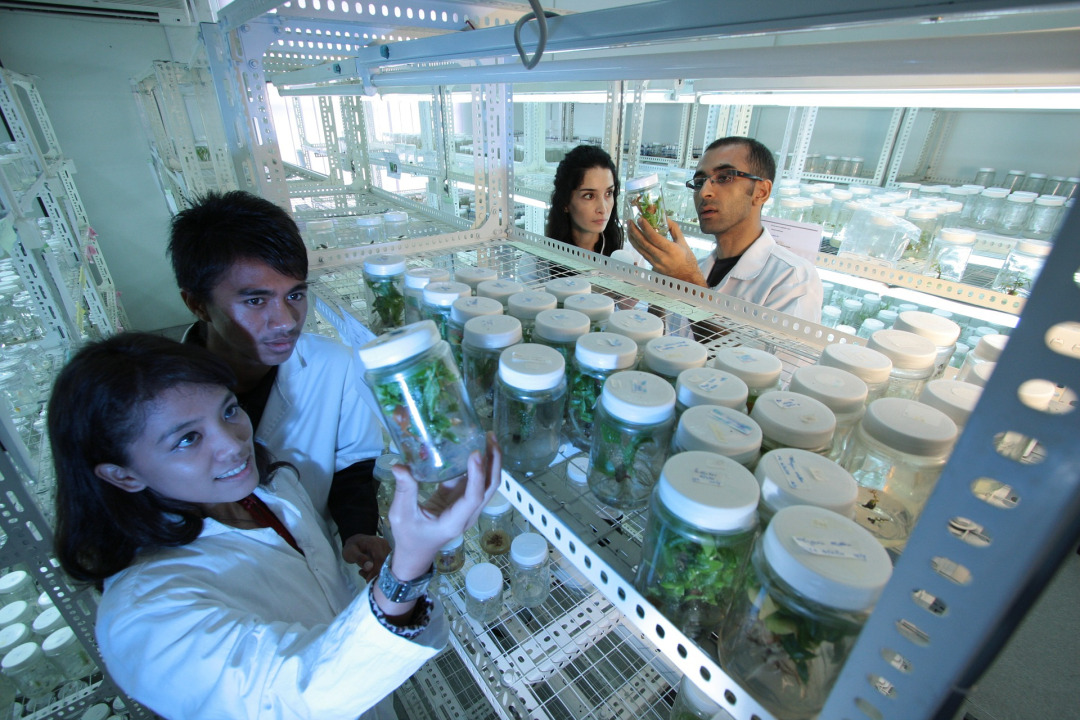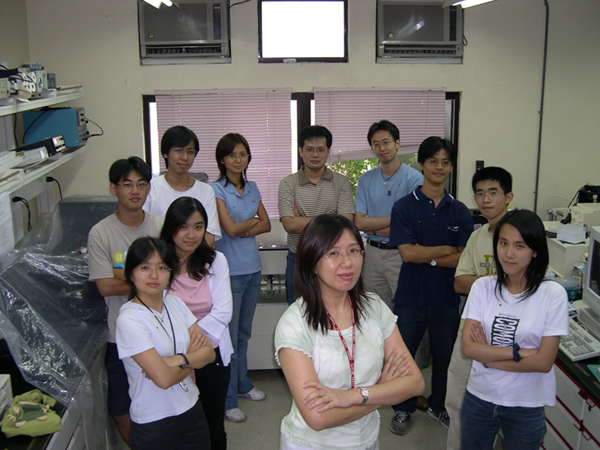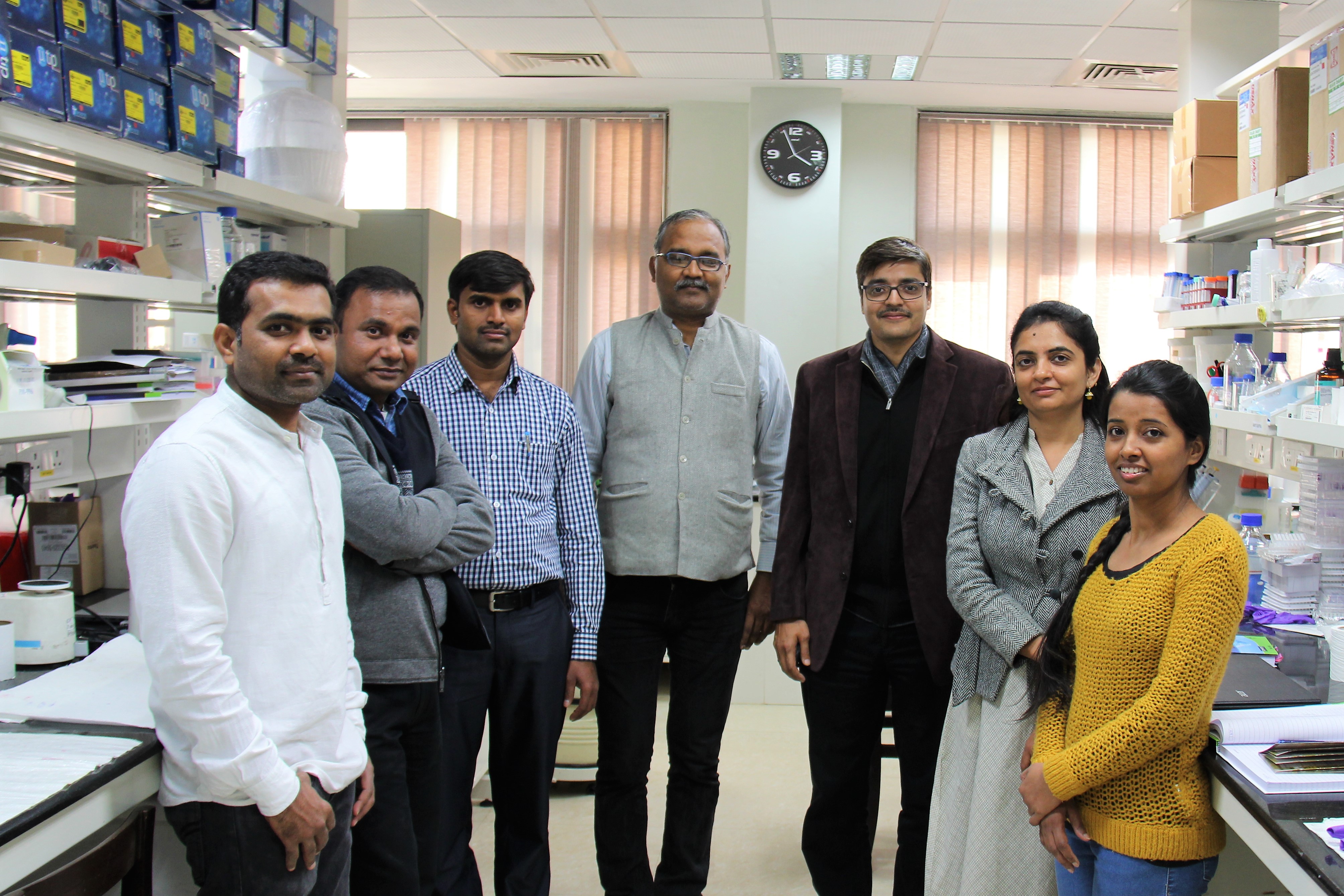
Interview with Dr. Rita P.Y. Chen, Associate Research Fellow at Academia Sinica
- Rendezvous
- 3.7K
Dr. Rita Chen is an Associate Research Fellow at the Institute of Biological Chemistry (IBC) and is also a TIGP-CBMB faculty member. Dr. Chen was awarded her Ph.D. degree from the Department of Biochemistry at the prestigious University of Cambridge in 1998. She is an alumna of National Taiwan University where she obtained her Master’s degree in 1991 from the Institute of Biochemical Sciences.

After completing her Ph.D., she moved to Taiwan in 1999 and joined the Institute of Chemistry, Academia Sinica and worked as a postdoctoral fellow until 2003. She joined the IBC in 2003 as an assistant research fellow leading an independent group working on protein folding and misfolding behavior, particularly of prions. She has authored more than 43 research articles and 6 patents.
One of the highlights from her group is the recent discovery that polyhydroxycurcuminoids, a curcumin analog derived from turmeric, may be useful in the prevention of Alzheimer’s disease. These compounds were found to upregulate neprilysin (NEP), the most important amyloid-β peptide (Aβ)-degrading enzyme.
Recently, many reports have shown that Aβ clearance is a promising strategy for the prevention and treatment of Alzheimer’s disease with NEP being the most important Aβ-degrading enzyme. Upregulating NEP is expected to decrease Aβ levels thus decreasing the risk of Alzheimer’s disease progression. This research was published in Scientific Reports, a scientific journal published by the Nature Publishing Group, on July 13th, 2016.
Dr. Rita, congratulations on your recent accomplishments and discovery. Could you elaborate a bit more on this research and what were your group’s challenges for this project?
My group works on protein folding and misfolding using prions and Alzheimer’s as a model. I was trained in Biophysics; NMR, CD, Spectroscopy, which was my tools to study misfolding of proteins in microbes. How I started to work on Alzheimer’s was purely incidental and my first research paper on prions was published in 2009.
We now know that post-translational modifications affect protein propensity either native or misfolded structure. My research article on misfolding kinetics published in PNAS in the year 2002 contributed to understanding this aspect a little more. Similar to prions, peptide aggregates are seen in Alzheimer’s disease. As we were interested in studying protein folding, I started collaborating with different groups in Taiwan.
We designed a highly sensitive fluorescence -based detection (0.1 nm detection) system of NEP (Neprilysin) as a result of such collaboration. We successfully established this screening system as a platform for which we have a provisional patent. Screening analogs or compounds which enhance the NEP activity was really challenging and difficult to apply for a patent.
A former classmate who had visited India and got curcuminoid analogs for his research offered 4 compounds to me for testing. While screening these compounds, I found some contradictory literature on their activity. We researched more to know whether it is curcumin, curmunoid or turmeric itself which is important for NEP activity. It got more interesting and challenging when the QE committee of my student recommended animal studies on our work and we decided to buy a breeding pair of transgenic mice for the specific study.
We were unable to succeed initially in breeding and maintaining the mice, but finally succeeded and performed pathological studies for the first time in our lab. This was something we had never done before and was akin to swimming in new waters for us.
Before pursuing your Ph.D., you worked as a research assistant for a brief period. Was this a conscious decision at your end to gauge your passion for research before making it a full-time career? Many times young students face this challenge of transformation from a master’s student to a Ph.D. student immediately. Do you feel a prior exposure to research helps?
As an RA you mostly follow orders and plans of your boss but to succeed as a Ph.D. student you ought to become an independent thinker eventually. However, prior experience certainly helps you to understand if research is your cup of tea. When I was a Master’s student, I changed projects three times after the first two failed.
Finally, after I got my master’s degree, I was exhausted and tried to get a job in industry. I was confident about my skills and enthusiastically sent my CV all over, not realizing that my expectation of salary (on my CV) was too high to get a response. Nevertheless, I received a few offers but the salary was not lucrative. Meanwhile, my prof from undergraduate college found a job for me to work as a patent translator. My job was to translate patents from English to Mandarin.
This too I quit after 3 months, the sole reason being boredom from routine documentation work. My boyfriend (now my husband!!) persuaded me to study for a government overseas scholarship exam. While preparing for the exam I still needed income so I landed a job in a school teaching physics and chemistry (just 21-22 hours per week). I assumed this job would be perfect. But again, I was bored! I finally went to my master’s degree guide in Sinica who offered me an RA position. Once I started working as an RA, I realized how much I loved and missed research.
So when I look back, I must say students should go out and try different possibilities and find what you love to do, for some perhaps a routine job could be quite satisfying and for others, it may not be the case. To know if you love research as a full-time career is really important. Remember research demands lots of patience, perseverance, and dedication. So, experience it before you make it a career option.
You are also a faculty of TIGP-CBMB program. Could you share with us what is the uniqueness of this program?
Although I am TIGP CBMB faculty, I never had a TIGP student and wonder why. Our lab is quite friendly and I am liked by my students. I did have a few TIGP students for lab rotation but they eventually joined other labs for their thesis work, but I do hope to have TIGP students in future.
CBMB is unique in its inception of training students in multi-disciplinary fields of molecular biology and chemistry in parallel, and converging the two fields for their research question, However, over time we found that getting trained in two different fields is often very challenging for students in terms of time and conceptual understanding. It can create a gap but with the core facilities we have we could bridge this gap and we have been successful to some extent.
What drives your passion and motivation for research? You have got your formal education in top tier universities in Tai-wan and even for that matter the most prestigious Cam-bridge University. Did this shape your interest? But not all students get this opportunity or have the ability to compete to get into such schools. There are times when average or above average students too have passion and they strive hard and improve subsequently in later years of their career.
I started my research on prions from my experience in the UK. The Mad Cow disease was all over the news, and the authorities in the UK were involved in disease control and prevention due to threats to life and huge economic losses.
In 2004, an epidemiological study done on cadaver spleen and tonsils found that in the UK alone 1 in 4000 humans had prspc (prion antigen) and again in 2013, a similar study on a larger sample study showed this ratio was 1 in every 2000 human. So, this is alarming!
On the other hand, the research community was keen on understanding the disease mechanism in order to combat it. It was not surprising that the 1997 Noble Prize in Medicine was awarded for work on prions. I was curious to know how prions behave and started reading the literature.
Until the research on prions, we knew one sequence gives one structure but what was perplexing was how this was not so true in the case of prions. So, my passion is based on curiosity, like for many others: my research is curiosity driven.
Coming to the second part of your question, doing experimental research is not related to a good school or university education. To give you an example, one of my best research staff has a master’s in mathematical education and that too from a not-so-well-known university of Taiwan. But her ability to design and perform experiments is excellent. She had never used a pipette before she arrived in my lab.
The ability to do experiments does not depend on the school one attends. Having said that, your reading ability and writing skills do reflect your foundation and previous training.
Today, female scientists are breaking barriers and glass ceilings. Many people claim that women are particularly adept at multitasking. What is your opinion on this?
What your glass ceiling depends on how ambitious you are. I love research and I like my job a lot but for me, the family is a priority. I am aware of some female colleagues who sacrificed family time during the starting years of their career because they were very ambitious, and are now highly successful in their respective fields. So, it is always a trade-off.
As a woman, I never thought of any glass ceiling or limitations for me, nor it was imposed by my family or my husband. I had my first two kids during my Ph.D. — I had to! As I grew in my Ph.D. life, I also grew in my personal life, in my new role as a mother. It was all rather satisfying for me. I remember, taking a year off when our first baby arrived and going back to Taiwan.
During my second pregnancy, I was doing experiments with the baby kicking me from inside! By the time I was writing my thesis, my baby was an infant and I was rocking the cradle with my foot while typing my thesis. I do not regret it at all. I respect the scientists and research community who are very ambitious and dedicate their lives. In the end, we all love science, but I also love my family life.
I had my first two kids during my Ph.D. — I had to! As I grew in my Ph.D. life, I also grew in my personal life, in my new role as a mother. It was all rather satisfying for me. I remember, taking a year off when our first baby arrived and going back to Taiwan.
During my second pregnancy, I was doing experiments with the baby kicking me from inside! By the time I was writing my thesis, my baby was an infant and I was rocking the cradle with my foot while typing my thesis. I do not regret it at all. I respect the scientists and research community who are very ambitious and dedicate their lives. In the end, we all love science, but I also love my family life.
Dr. Rita Chen was interviewed by Mr. Girish Mokkapati, who is a graduate Ph.D. candidate at ABRC, Academia Sinica and also representative of Graduate Student’s Association at Academia Sinica.
Images: http://www.ibc.sinica.edu.tw/pyc/


